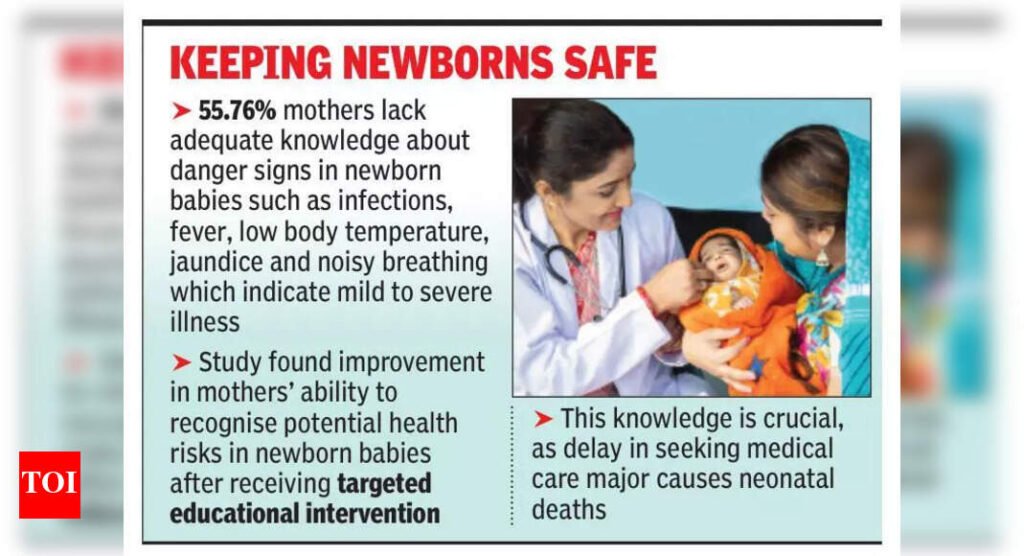Lucknow: More than half the number of mothers (55.76%) lack adequate knowledge about danger signs in newborn babies such as infections, fever, low body temperature, jaundice and noisy breathing—symptoms that may indicate mild to severe illness. Providing mothers this essential information can help ensure timely treatment and prevent avoidable deaths.A study conducted by the pediatrics department at King George’s Medical University, led by Prof Shalini Tripathi, found improvement in mothers’ ability to recognise potential health risks in their newborn babies after receiving targeted educational intervention.Published in the International Journal of Pediatrics and Neonatology in Jun 2025, the study focused on mothers of newborns (0–28 days old) admitted to the Neonatal Intensive Care Unit and Neonatal Nursery Unit at KGMU. Researchers Amrita Singh, Suchana Roy Bhowmik and Anugrah Charan from the same department were also part of the study.The research team used a quasi-experimental approach involving 113 mothers. Their initial knowledge was assessed, followed by an educational session using a specially designed mini-booklet. Follow-up assessments on the second and fifth days measured the impact.Results showed significant increase in mothers’ knowledge scores after the intervention. The sustained improvement indicated efficacy of the programme.Prof Shalini said this knowledge was crucial, as delays in seeking medical care were major cause of neonatal deaths in UP. According to National Health and Family Growth Survey, 28 newborns per 1,000 live births in the state die within a month of birth.“The neonatal period is highly vulnerable, and early recognition of warning signs is critical for a newborn’s outcome,” said Prof Tripathi, adding, “Our study shows educational intervention can help mothers seek timely care, potentially improving survival rates for sick newborns.”She added, “These findings highlight value of structured education. When mothers understand danger signs, they are more likely to seek prompt institutional care, which is crucial to reducing newborn illness and deaths.”The study also found that factors such as a mother’s education, number of postnatal visits and prior exposure to health information influenced initial awareness. Mothers with higher education and more contact with healthcare services showed greater improvement.


